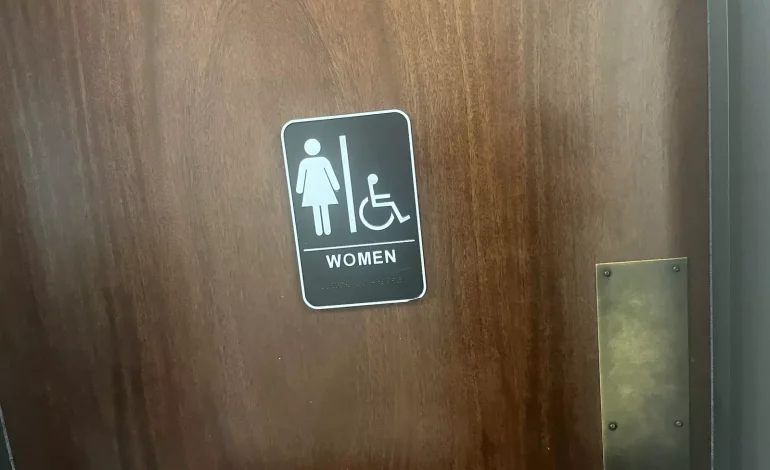State Representative Martha Lawley of Big Horn and Washakie counties has announced plans to introduce two bills aimed at restricting transgender individuals’ access to women’s sports and certain public facilities, KGAB AM 650 reports.
The proposed legislation is expected to be introduced during Wyoming’s upcoming General Legislative Session on January 14, 2024, in Cheyenne.
The bills, titled the Student Eligibility in Sports Act Amendment and the Protecting Women’s Privacy in Public Spaces Act, focus on collegiate sports participation and access to gender-specific public spaces, respectively.
The first proposal is an amendment to Wyoming’s existing Student Eligibility in Sports Act, which already prohibits boys from competing in girls’ sports in grades 7-12. Rep. Lawley, who co-sponsored the original act in 2023, aims to extend those restrictions to collegiate sports, affecting athletic programs at the University of Wyoming and community colleges across the state.
In a recent opinion piece, Lawley explained the motivation behind her proposal:
“The amendment I am proposing to the Student Eligibility in Sports Act would extend these protections to collegiate sports, covering the University of Wyoming and our community colleges. It ensures that eligibility standards are based on biological sex, protecting fairness from grade school through college. This isn’t about shutting anyone out—it’s about giving every young woman the chance to compete on a level playing field.”
One of the more controversial aspects of the amendment is its potential impact on Wyoming collegiate sports teams’ ability to compete against out-of-state teams. The bill proposes to ban Wyoming teams from competing against teams with one or more transgender players. This provision could affect intercollegiate sports schedules and tournament participation for Wyoming institutions.
The amendment also includes provisions for legal remedies to allow students to take action if they believe their rights under the policy are violated. Supporters of the proposal argue that it will protect fairness in women’s sports by ensuring that eligibility is based on biological sex. Critics, however, contend that such policies discriminate against transgender athletes and could have broader implications for intercollegiate competition and inclusion efforts.
The second proposal, titled the Protecting Women’s Privacy in Public Spaces Act, would regulate access to spaces like female restrooms, locker rooms, showers, and correctional facilities. According to Rep. Lawley, the purpose of this bill is to protect privacy and safety in places where women and girls expect privacy from individuals of the opposite biological sex.
In her op-ed, Lawley stated:
“This bill ensures that women and girls can feel safe and respected in places where privacy is essential—bathrooms, locker rooms, showers, and correctional facilities.”
If passed, the law would bar transgender women (individuals assigned male at birth but who identify as female) from entering female-only spaces in public restrooms, locker rooms, and jails or correctional facilities. Proponents argue that the bill is about privacy and security, while critics have described such measures as discriminatory, pointing to concerns about how transgender individuals will access essential public services.
Similar bills have been proposed in other states, often sparking heated debates about civil rights, public safety, and the treatment of transgender individuals.
Wyoming’s General Legislative Session begins on January 14, 2024, and runs for two months. During this session, lawmakers can introduce bills on any topic with a simple majority vote. This differs from Wyoming’s Budget Sessions, where non-budget-related bills require a two-thirds majority to be considered.
As of Thursday morning, neither of Rep. Lawley’s bills had been formally filed on the Wyoming Legislature’s website. However, the announcement of her intent has already drawn attention from advocacy groups and community members on both sides of the issue.
If passed, the legislation could have significant implications for Wyoming’s collegiate sports programs and the public accommodations of transgender individuals in the state. Nationally, similar measures have sparked legal challenges, with opponents arguing that they violate federal anti-discrimination protections under Title IX and the Equal Protection Clause of the US Constitution.
The bills proposed by Rep. Lawley are part of a broader trend seen across the United States, where several states have introduced or passed laws regulating transgender participation in sports and access to public facilities. Proponents often cite fairness in women’s sports and privacy in public spaces as the key reasons for these measures. Opponents, however, argue that the bills unfairly target transgender individuals and create unnecessary barriers to access for an already marginalized community.
In Wyoming, debate over similar issues has been ongoing. The original Student Eligibility in Sports Act, passed in 2023, limited transgender students’ ability to participate in girls’ sports from grades 7 through 12. Lawley’s proposed amendment would significantly expand those restrictions to include collegiate sports, potentially affecting eligibility at the University of Wyoming and community colleges.
This move aligns with broader efforts across several US states to limit transgender athletes’ participation in sports that align with their gender identity. Laws have been passed in Arkansas, Idaho, Mississippi, and Florida, with legal battles currently underway in several of those states.
As of now, it is unclear how much support the bills will receive from Wyoming lawmakers or whether the bills will be amended during the legislative process. Supporters see the measures as a necessary step to ensure fairness in sports and protect privacy in public spaces. Opponents argue that the bills could violate civil rights laws and that they represent government overreach into individual freedoms.
When the legislature convenes in January, both bills are expected to generate significant public debate. Similar bills in other states have drawn attention from civil rights groups, LGBTQ+ advocacy organizations, and legal experts, many of whom have challenged the legality of such measures in court.
Rep. Lawley remains firm in her position, stating that her proposals are about fairness and safety, not exclusion. She argues that the legislation is intended to ensure that women and girls have access to spaces and sports opportunities where they feel safe, respected, and fairly represented.
Next Steps:
- Bill Introduction – Rep. Lawley is expected to formally submit both bills for consideration during the Wyoming General Session starting on January 14, 2024.
- Legislative Debate – Once introduced, the bills will be assigned to committees for review and possible amendments before moving to the House or Senate floor for a vote.
- Public Testimony – As with most controversial measures, the public will have the opportunity to offer feedback through testimony during legislative committee hearings.
Both supporters and critics are likely to mobilize, as the legislation touches on deeply divisive issues at the intersection of civil rights, gender identity, and privacy.
The proposed bills by Rep. Martha Lawley to restrict transgender access to women’s sports and facilities have sparked early debate ahead of Wyoming’s General Legislative Session in January 2024. The Student Eligibility in Sports Act Amendment would expand existing rules on transgender participation in sports to include collegiate athletes, while the Protecting Women’s Privacy in Public Spaces Act would limit transgender individuals’ access to female-only spaces in restrooms, locker rooms, and correctional facilities.
Proponents of the bills view them as necessary steps to ensure fairness, safety, and privacy for women and girls. Critics, however, argue that they could harm transgender individuals and face potential legal challenges over civil rights violations.









